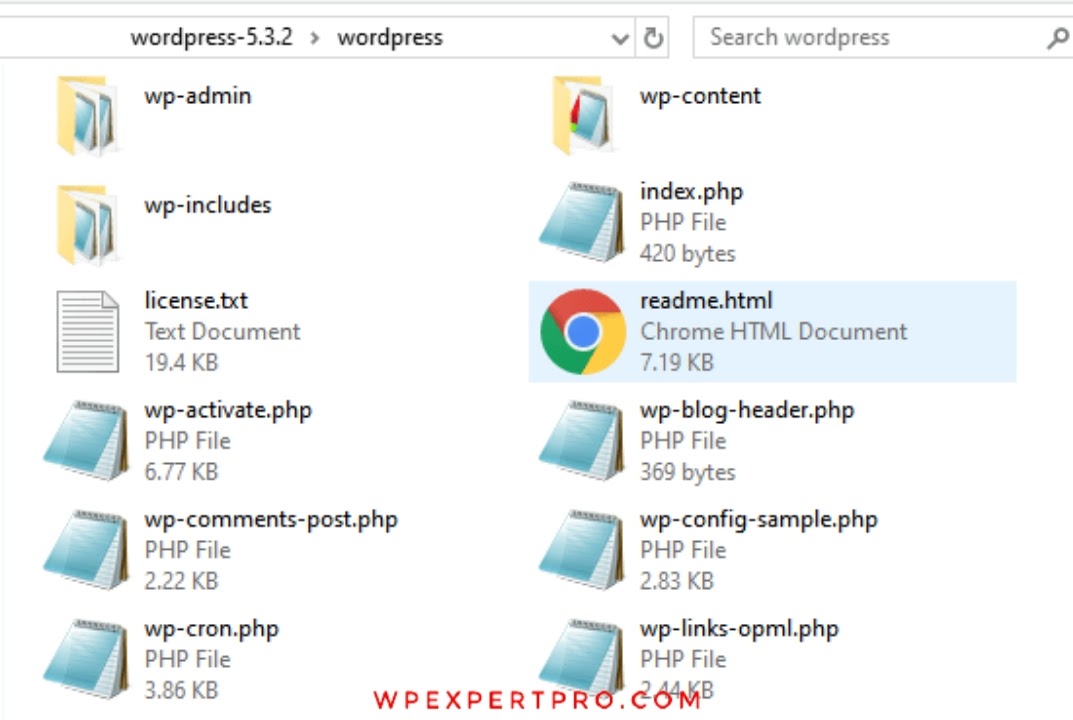PHP is a scripting and computer language that allows you to create dynamic, interactive webpages. The PHP scripting language is used to create WordPress. PHP, like WordPress, is an open source project.
PHP is a server-side language, which means it runs on the server where your website is hosted. When someone visits your website, their browser makes a request to your server for the page. The PHP code runs on the server and produces an HTML page for the visitor to view. The HTML page is subsequently shown in the visitor's browser. Because the PHP script is only on the hosting server, they can't see it.
What is PHP's Role in WordPress?
WordPress is powered by PHP code. A MySQL database contains all of the information on a WordPress website. Everything from your blog name and article content to your plugin settings and user profile information is included in this data.
PHP's role is to extract certain data from a database and assemble it into an HTML web page.
PHP code can be found in files with the.php extension.
When you open a WordPress zip file, you'll notice that the majority of the files are PHP files.
File names like wp-config.php, index.php, and many others can be found in the screenshot below. Each of these files includes the code that allows WordPress to do various tasks.
A WordPress theme folder has a similar appearance. Files like sidebar.php, header.php, and others can be found here. The template hierarchy of a theme is made up of these files, which display the various areas of your website.
PHP code must be enclosed within the?php opening tag and the?> closing tag. HTML code can also be found in PHP files.
Each PHP tag can get a small amount of data from your database. The PHP code for displaying your blog name, which is then encased in HTML title tags, may be seen in this example.
What is PHP and How Does It Work?
If you check up PHP on the internet, you'll discover that it's a "server-side" scripting language. Unfortunately, the brief explanation is insufficient for newcomers.
The phrase "server-side" simply indicates that all of WordPress' PHP files run on your web hosting server. Simply said, when someone visits your website, WordPress reads the PHP files to retrieve database information (such as the content of your blog posts) and display it to the visitor.
That appears to be straightforward. However, there is a minor snag. PHP is not read by web browsers. They are able to read HTML.
HTML is a scripting language that is used to construct web pages. HTML is known as a "client-side" programming language.
Clients are browsers like Chrome, Firefox, and others. A "client-side" language essentially implies that web browsers handle the transformation of HTML code into what you see in your browser window.
So, how can people see your WordPress website if browsers only read HTML and it was built in PHP?
Let's have a look at how the PHP code in WordPress interacts with HTML in detail first:
- Someone first types your website's address into their browser or clicks on a link.
- This makes a request to the server that hosts your website.
- Your server then delivers the HTML code to their browser across the Internet.
- The HTML code is translated into a web page by their browser.
When you visit a website built with PHP, such as WordPress, you must complete an additional step.
Before sending the HTML page to the browser, the server must first run PHP code to construct it.
PHP Versions of WordPress
There are various versions of PHP available, just as there are for other programming languages. Some versions, such as PHP 5.5, 7.0, and 7.1, are no longer supported.
You should utilize the most recent version of PHP as the proprietor of a WordPress website. We say this because each new version of PHP addresses security vulnerabilities while also speeding up your website.
Because PHP is such a popular programming language for creating websites, it has become a target for hackers. As a result, owning the most recent version will give you security features and fixes that aren't available in older versions.
Because they employ the most up-to-date versions of PHP with their WordPress web hosting packages, we recommend Bluehost, SiteGround, or WP Engine as your web host.
Is PHP knowledge required for WordPress users?
To use, administer, or manage a WordPress website, users do not need to know PHP. WordPress comes provides all of the PHP files you'll need, as well as themes and plugins, so you may use it without knowing how to code in PHP.
Most WordPress users will never need to know how to write in PHP, but if you want to create your own plugins, themes, or make complex WordPress website adjustments, you'll need to learn PHP.
We hope you found this article useful in learning more about PHP.




